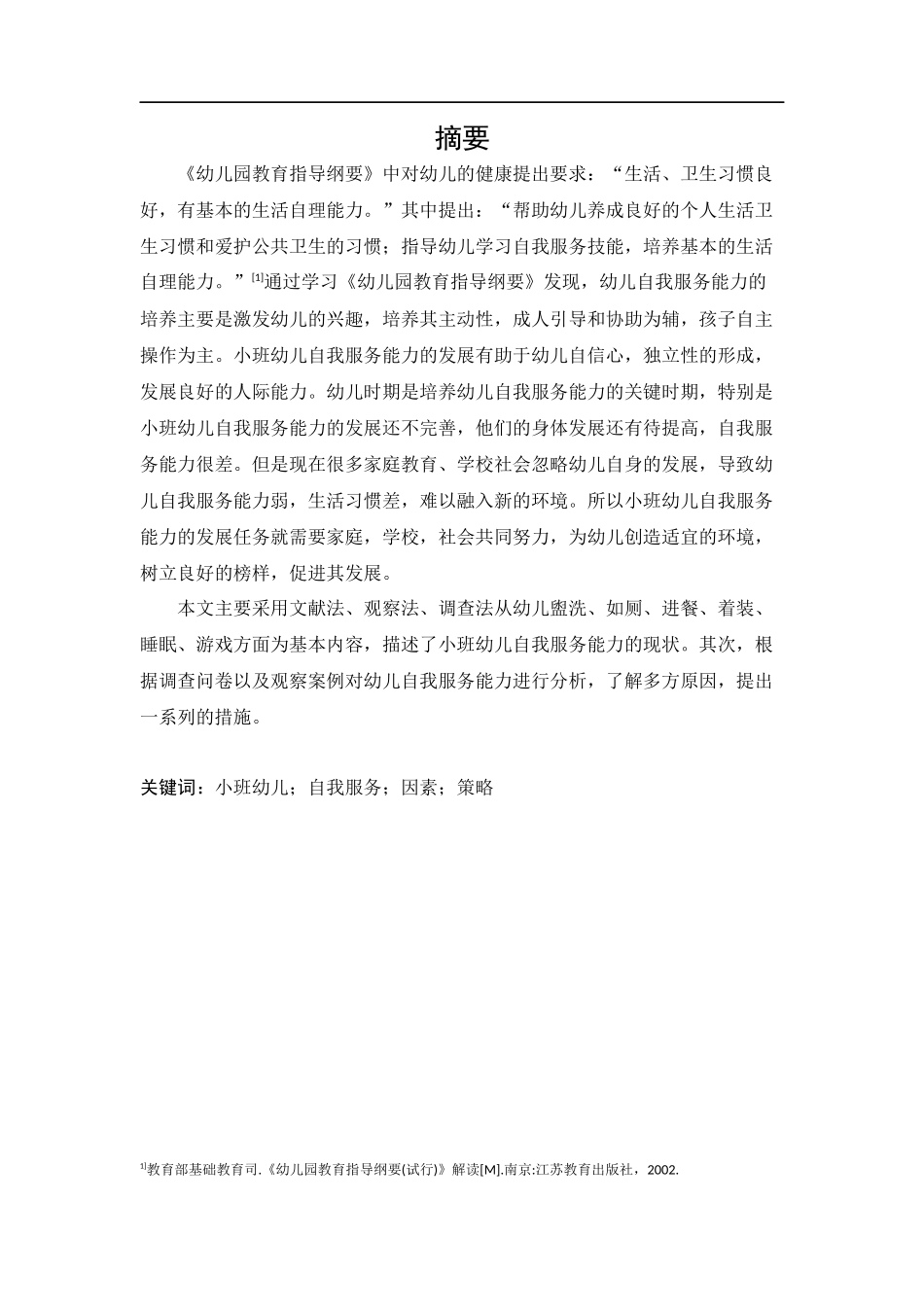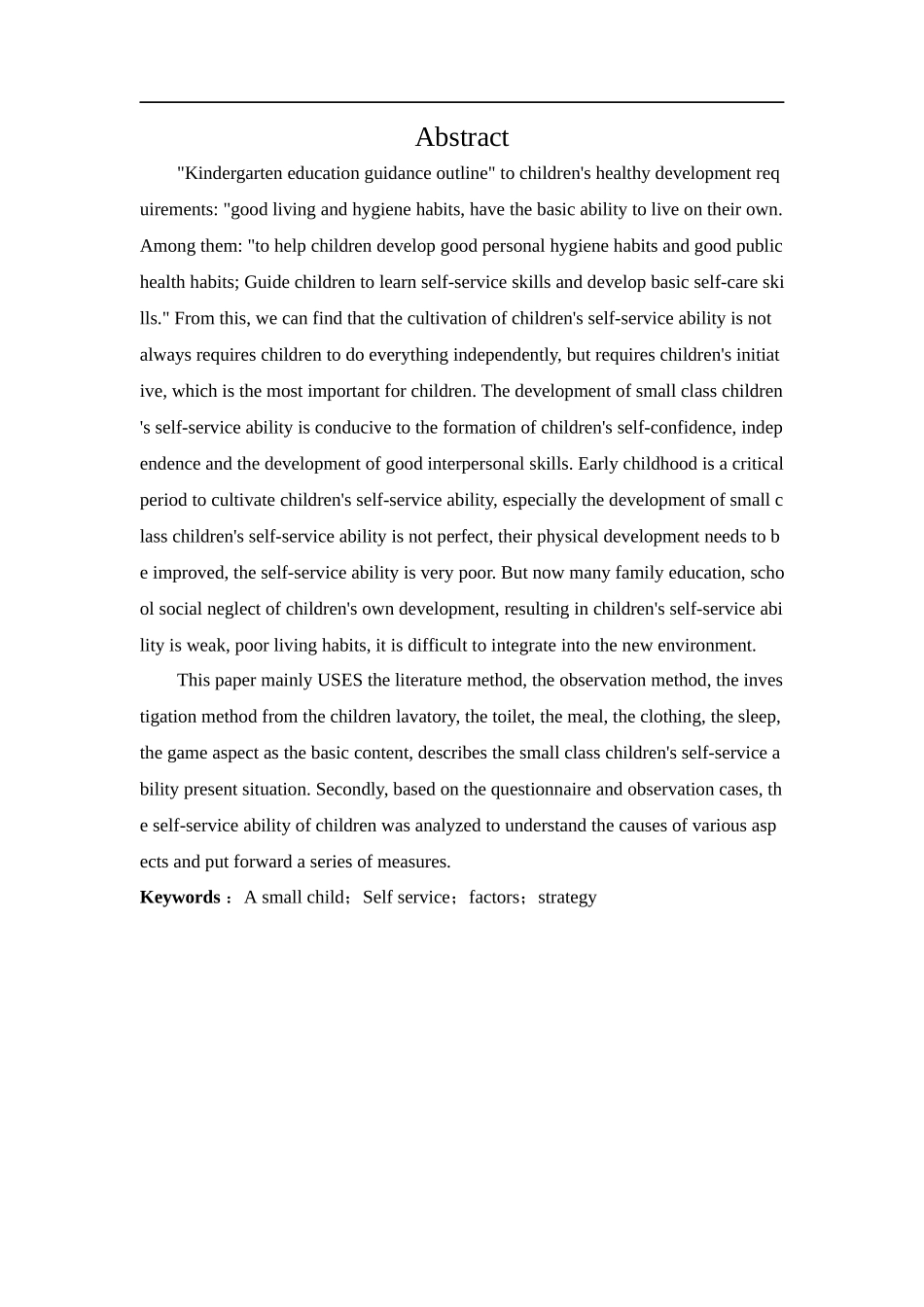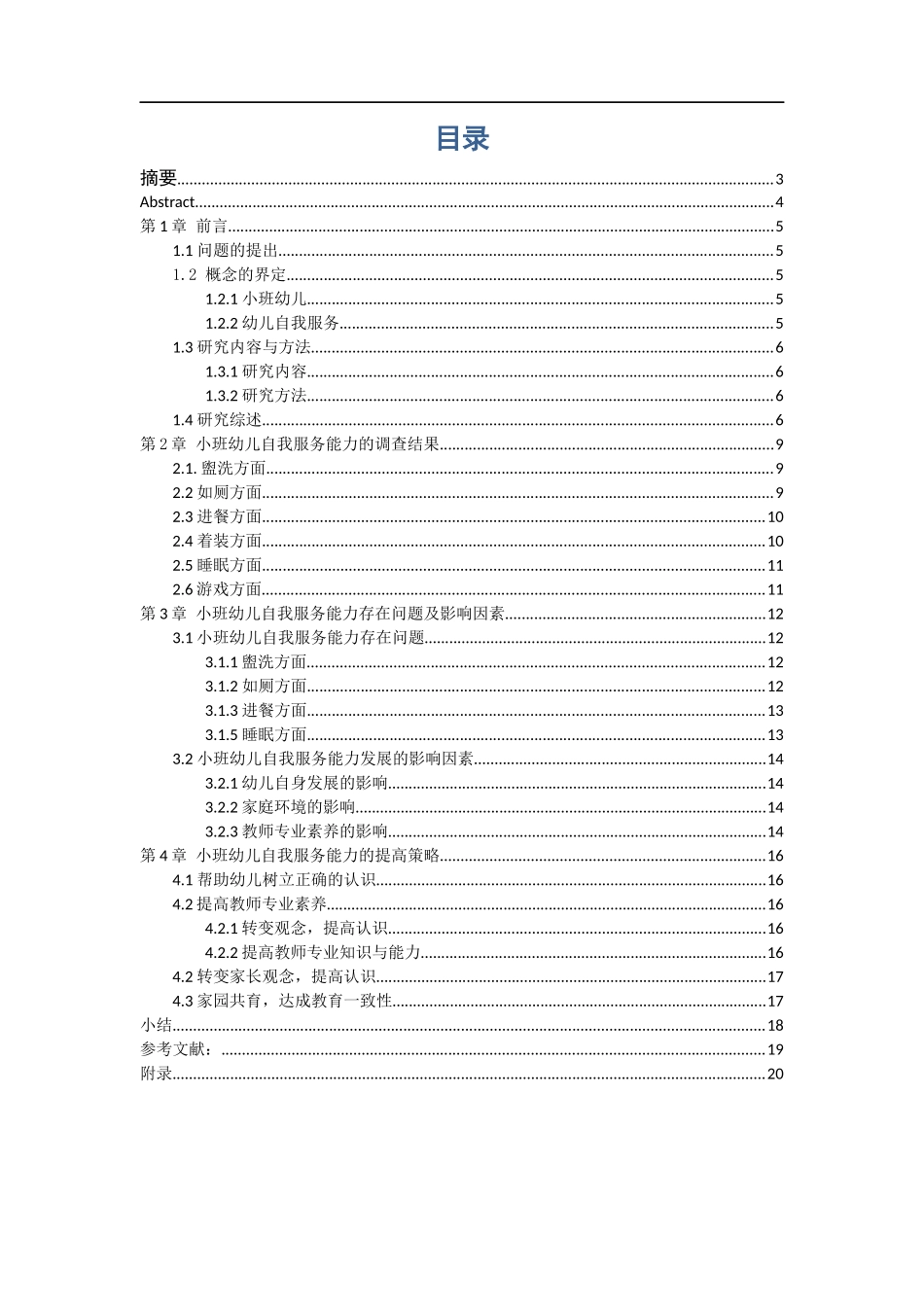摘要《幼儿园教育指导纲要》中对幼儿的健康提出要求:“生活、卫生习惯良好,有基本的生活自理能力。”其中提出:“帮助幼儿养成良好的个人生活卫生习惯和爱护公共卫生的习惯;指导幼儿学习自我服务技能,培养基本的生活自理能力。”[1]通过学习《幼儿园教育指导纲要》发现,幼儿自我服务能力的培养主要是激发幼儿的兴趣,培养其主动性,成人引导和协助为辅,孩子自主操作为主。小班幼儿自我服务能力的发展有助于幼儿自信心,独立性的形成,发展良好的人际能力。幼儿时期是培养幼儿自我服务能力的关键时期,特别是小班幼儿自我服务能力的发展还不完善,他们的身体发展还有待提高,自我服务能力很差。但是现在很多家庭教育、学校社会忽略幼儿自身的发展,导致幼儿自我服务能力弱,生活习惯差,难以融入新的环境。所以小班幼儿自我服务能力的发展任务就需要家庭,学校,社会共同努力,为幼儿创造适宜的环境,树立良好的榜样,促进其发展。本文主要采用文献法、观察法、调查法从幼儿盥洗、如厕、进餐、着装、睡眠、游戏方面为基本内容,描述了小班幼儿自我服务能力的现状。其次,根据调查问卷以及观察案例对幼儿自我服务能力进行分析,了解多方原因,提出一系列的措施。关键词:小班幼儿;自我服务;因素;策略1]教育部基础教育司.《幼儿园教育指导纲要(试行)》解读[M].南京:江苏教育出版社,2002.Abstract"Kindergarten education guidance outline" to children's healthy development requirements: "good living and hygiene habits, have the basic ability to live on their own. Among them: "to help children develop good personal hygiene habits and good public health habits; Guide children to learn self-service skills and develop basic self-care skills." From this, we can find that the cultivation of children's self-service ability is not always requires children to do everything independently, but requires children's initiative, which is the most important for children. The development of small class children's self-service ability is conducive to the formation of children's self-confidence, independence and the development of good interpersonal skills. Early childhood i...


